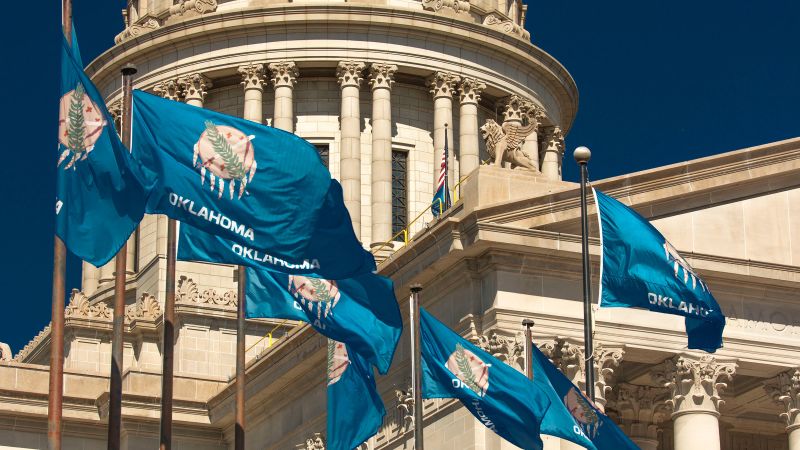Teachers who wish to move from more liberal states to Oklahoma are now facing a significant hurdle in their quest to work in public education: a newly implemented assessment designed to evaluate their eligibility. This controversial test, the first of its kind in the nation, began on a day that coincides with the school’s opening preparations in various Oklahoma districts. Oklahoma’s Superintendent for Public Instruction, Ryan Walters, has publicly asserted that this measure is necessary to “keep away woke indoctrinators” from state classrooms.
The crux of this assessment is drawn from materials created by PragerU, a conservative media organization known for producing educational content that aligns with right-wing ideologies, particularly the Make America Great Again movement. While PragerU claims to promote crucial American values, it has often been criticized for spreading misleading information and is not recognized as an accredited educational entity. Despite these criticisms, the partnership between Oklahoma’s educational authorities and PragerU is emblematic of the broader trends in U.S. education, particularly influenced by the recent political climate.
In the context of educational reform, many regard Oklahoma’s recent collaboration with PragerU as a pivotal moment in the ongoing “culture wars” related to education. This partnership illustrates a shift in which an external organization, previously merely a provider of conservative educational materials, now plays a critical role in teacher certification within the state. Jonathan Zimmerman, a historian of education at the University of Pennsylvania, described this development as “institutionalized” influence for PragerU as the organization now directly influences the standards that teachers must meet in order to be considered fit for employment in state schools.
The assessment is currently being administered to teachers relocating from California and New York, but it is possible that Florida, Illinois, and other states may be included in the initiative in the near future. Walters did not shy away from articulating his views on this new direction; he expressed a dedication to ensuring that liberal educational philosophies do not permeate Oklahoma’s educational environment. He emphasized the importance of grounding education in objective facts, such as biological distinctions between genders and primary source documents in teaching American history, reaffirming a conservative framework for education.
Notably, the test itself includes about 50 questions, some of which are controversial and tied to the prevailing debates surrounding gender identity, history, and values in American society. Critics argue that these questions reflect an ideological bias that undermines teachers’ professional qualifications. For instance, questions assessing knowledge about constitutional tenets or the significance of the freedom of religion serve not only to evaluate content knowledge but also to subtly impose a specific ideological perspective that aligns with conservative values.
In addition, the use of PragerU in Oklahoma’s teacher certification process has raised concerns about the quality and integrity of the state’s education system, especially given that the state has been grappling with a teacher shortage and dissatisfaction regarding its educational rankings. Critics from the Democratic Party and the education community have condemned the testing initiative as a sort of loyalty oath to conservative values, effectively labeling it an unwarranted intrusion into educators’ professionalism.
As a result, legal challenges are anticipated, particularly as voices of dissent from parents, teachers, and education advocates express their trepidation regarding the assessment’s implications. Political leaders in Oklahoma have faced scrutiny over their unilateral approach to educational reforms, evidenced by Walters’ assertion that it is within his authority to oversee the implementation of this test without needing prior approval from the State Board of Education.
While such measures may appeal to some constituents, they are also indicative of broader ideological rifts within American society concerning education, freedom of expression, and the role of teachers in shaping young minds. The emergence of PragerU’s materials in public school curricula — now spanning multiple states beyond Oklahoma — signifies a growing entrenchment of conservative values within educational systems that were once viewed as bastions of critical thinking and diverse perspectives. As the debate continues, it remains to be seen how this shift will affect not only the quality of education in Oklahoma but also the broader landscape of teaching in the United States at large.











